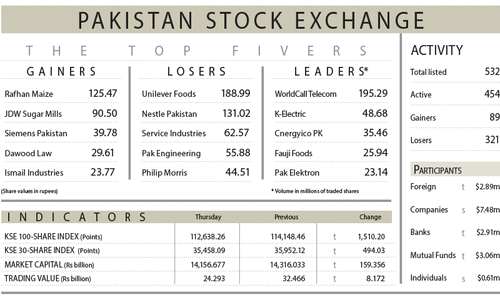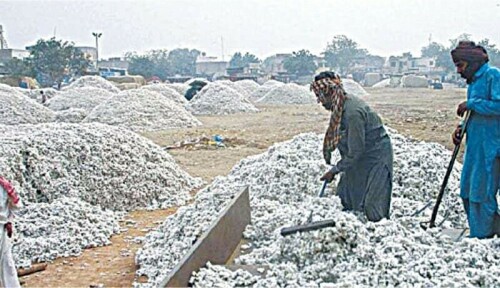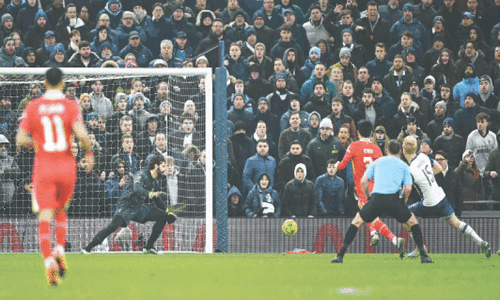KARACHI, Nov 28: Pakistan has stepped up its diplomatic efforts with 27-member European Union (EU) for negotiating a Free Trade Agreement (FTA) and also qualifying for some of the concessions and incentives to be given to developing countries under a new Generalised System of Preferences (GSP) to be introduced next year for a period of five years.
“Federal Commerce Secretary Syed Asif Shah recently visited a number of European capitals to solicit support for Pakistan in negotiations with the EU Commission,’’ a well-placed source in Trade Development Authority of Pakistan (TDAP) disclosed.
Pakistan’s mission in Brussels is also actively engaging EU Commission on various issues. “Our lobbying is on bilateral basis with EU individual member countries and also at the EU Commission in Brussels by our negotiators and top officials,’’ the source added.
Also leaders of the textile industry at home are engaged in hectic lobbying with the diplomats of EU member countries in Islamabad. These leaders claim to have mobilised support for Pakistan’s stance in its trade relations with EU with several individual member countries.
What is causing sleepless nights to political leadership, officials of commerce and textile ministries and textile business are the reports emerging from Brussels that suggest that EU is considering an FTA with India.
Following hectic series of negotiations initiated by former commerce minister Humayun Akhtar Khan, the EU Commission agreed to appoint a consultant to find out the impact of EU-India FTA on Pakistan’s business and economy.
“The EU is giving a report on this issue in January next,’’ a well-placed government officer in Karachi disclosed. The government will work out a strategy to seek FTA arrangement with EU in the light of the findings contained in the consultant’s report on impact of EU-India free trade pact on Pakistan.
But after Doha Development Agenda stagnated several Asian countries have lined up at EU Commission in Brussels to conclude an FTA with Europe. Till the end of 2007, Asean bloc, China, South Korea, India and a few South American countries were among those, which sought FTAs with EU.
“Our turn for negotiation for an FTA will come at least after 5 years,’’ a source in the government indicated.
Pakistan has been placed at a much disadvantaged position in its trade with EU since 2004. The EU levied 13.1 per cent anti-dumping duty on bedlinen exports from Pakistan in March 2004. This was later reduced to 5.8 per cent in May 2006 and is still continuing.
This anti-dumping duty on bedlinen exports from Pakistan is expiring sometimes early next year. But Pakistani textile exporters fear re-enforcement of this duty if Euro Cotton, an EU body, gets a complaint from the local businesses. Both officials and textile exporters are set to preempt any such move and ensure a duty-free export of bedlinen to the European market.
While Pakistan has serious grievances against EU on imposition of anti- dumping duty on bedlinen, it failed to qualify for the EU support in trade as was given to Bangladesh and Sri Lanka.
After having been excluded from Special Incentive Arrangement for Sustainable Development and Good Governance under the current GSP, which expires in December 2008, Pakistan will be isolated altogether in South Asia, if EU concludes an FTA with India.
Bangladesh and Sri Lanka already enjoy a special status under the GSP and are expected to get more trade benefits in future arrangements.
“A reduction of $1 billion in our textile exports means loss of livelihood for one million families in Pakistan,’’ the former commerce minister Humayun Akhtar bluntly told John Hutton, British Secretary of State for Business, Enterprise and Regulatory Reform in July last year.
Britain had agreed last year to use its good offices in taking up Pakistan’s case for qualifying for concessions available under GSP and also for an FTA.
Pakistan’s oft-repeated position for an FTA with EU is that it meets all economic criteria set for this. “With 160 million population, Pakistan ranks among 25 emerging markets in the world that maintained an average 7 per cent growth rate till 2006-07,’’ the official said while pointing out that Pakistan has one of the most liberal investment policies in the region and its recent joining a programme with IMF is a testimony of adhering to financial discipline and fiscal and monetary balance.















































Dear visitor, the comments section is undergoing an overhaul and will return soon.